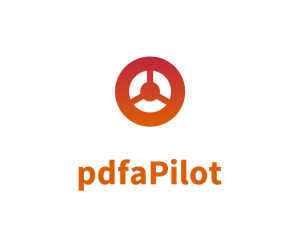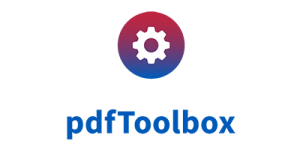Based on established technology, pdfchip creates:
High-quality PDF from HTML, taking full advantage of styling with CSS3 and optionally augmented with JavaScript. A good understanding of up-to-date web technology is sufficient to get started with pdfChip. There is no need to learn custom XML or XSL-FO based languages; anything that works in HTML is immediately usable in pdfChip.
Support for high-quality PDF
Standard HTML and CSS are limited with regards to colour spaces, prepress related features like overprint, or advanced pagination. pdfChip extends the syntax of HTML 5, CSS3 and JavaScript to provide support for often needed professional publishing, print, document exchange and archival features. Some of the extensions to HTML5 and CSS3 are:
- Advanced color space support (including support for CMYK, Lab, ICC-based color spaces and spot colors)
- Lossless import of CMYK JPEG images, PDF pages and SVG
- Generation of XMP metadata
- Generation of standards-compliant PDF/X and PDF/A files
Support for advanced pagination
pdfChip provides custom JavaScript functions and objects for full control of the PDF output process. This includes extensive support of variable data type scenarios where a basic HTML template is modified at runtime using JavaScript, and pages are output for as many instances as necessary (for example based on data dynamically retrieved from a database). pdfChip can also output long documents (such as for example books). It includes a multi-pass option for advanced pagination, supporting page numbers, running headers and context dependent backgrounds or overlays.
Barcodes and other advanced content
HTML already provides numerous possibilities to describe content and apply styling; pdfChip takes this one level higher and also supports advanced scenarios. SVG is fully supported, both inline in HTML files or as a referenced SVG image; conversion from SVG to PDF is carried out without any loss of quality. MathML is also fully supported, introducing high quality PDF representation of formulas of any complexity; this is especially important for text book or scientific publishing.
And last but not least pdfChip incorporates full-featured barcode functionality. Barcodes can be inserted through easy-to-define custom objects; pdfChip supports over 100 types of barcodes used throughout the world.
Command-line processing for easy integration
pdfChip is a command-line application. Because it is easy to install (installation is basically extraction of the installation archive) and has a clear and easy-to-learn command line interface, it’s ideally suited for use on a web server to provide dynamic PDF creation. But it can just as easily be integrated in a custom application or be driven by automated solutions such as Laidback FileTrain or Enfocus Switch.
Wide applicability across different markets
With its extensive feature set and high-quality PDF output, pdfChip is ideally suited as the back-end PDF creation solution for many different applications, amongst others:
- Imposition and content aggregation workflows
- Composition workflows where templates and user contents have to be combined on the fly and where printable PDF documents have to be delivered
- On-the-fly preparation of magazine, newspaper and book content or sales literature
- Dynamic generation of one-off content such as tickets, stubs, order data, invoices … (for example in web-to-print environments)
- Variable data printing where templates have to be filled with data coming from a data source (such as a database or CRM system)
- Transactional printing workflows where transactional data needs to be combined with visually rich designs
Different license levels for different businesses
Because nobody’s needs are the same, pdfChip comes in four different license levels carrying a different price tag and sporting matching feature sets.




